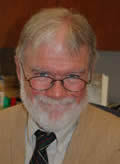
Perhaps even more than most other mammals of the northern hemisphere, human inhabitants of the cloud-shrouded Saint Joseph River valley long for the vernal equinox. I certainly do, anyway.
After this year’s particularly relentless winter, the strengthening of the sunlight yesterday afternoon drew me outside for an unsuccessful attempt to deceive my wife with a pretense of responsible yard work, when I was in fact idly kicking up petrified dog scat, whistling feeble imitations of birdsong, and gathering fallen bark, twigs and tree branches into a tidy heap. I thought I might burn them later. Sunday, after all, is a day of rest.
And this was Palm Sunday. The earth had begun its warming tilt toward the sun three weeks before, the moon was swelling night by night, and the forsythias my wife had planted two years ago were blazing into flower. A noisy but inconclusive exchange between our excitable dog and a cheeky squirrel was going on and the whole back yard seemed to shudder awake, yawn, flex and stir into new growth.
It occurred to me that after nightfall a week from now, I could toss in last year’s palms and turn this offhand brush pile into our own Pascal Fire. The wafting smoke of that imagined fire soon became imagined incense and gave rise to further imaginings: Before there were Christians in these parts, were the locals indulging similar anticipations of approaching festivals? What ritual passages from darkness to light may have taken place, perhaps even on this patch of ground where I was piling yard waste, a thousand years before the European newcomers?
The celebrations of the Miami people, or the Potawatomi people, or the people who were here before them, likely looked a lot like those of my ancient, pre-Christian Celtic ancestors. Come to think of it, the upcoming celebrations at the Basilica of the Sacred Heart and the parishes of South Bend and its suburbs were unlikely to look much different from either.
“Only Christian men,” G.K. Chesterton wrote, “guard even heathen things,” and only our Easter Vigil could so fearlessly preserve all sorts of gestures which no Druid could improve on: In a week I would be one among a gathering in the darkness, keeping watch while an elder struck flint to make a fire blaze up which we would then surround, singing; and there would be a great cistern of water into which an unmistakably phallic and elaborately decorated candle would be plunged; and then the hallowed water would be splashed on all of us in the crowd and the candle flames would be refracted and multiplied as stories were intoned of who we are, where we come from and what we are becoming. The Celts and the Miami, like our other forbearers in this hemisphere, surely took part in something that looked and sounded at least a little like that.
At the time of the equinox, those pious ancients were doing important things, all right: Bedding down one season and rousting another; keeping stars, sun and moon in auspicious alignment; cheering on the sap and sunrise; quaffing the new wine; sprinkling barley meal; offering new tobacco; flaying sacrificial hecatombs; letting copulation thrive. But did they ever dream, could they ever dream, of what we who came after them would be up to? Could I? Could we?
We would indeed guard even heathen things: we would remain mindful of the tilt of earth and tug of seasons, observe the decorum of the stars, grieve the sorrows of the winter and extol the spring life swelling. On this first Sunday after the first moon of the vernal equinox, we would do all those worthy heathen things. No less than those of our kindred heathen, our gestures would strain after inexhaustible mysteries that our rites could never contain.
But something new would stir our rites of spring, because we would tell with fire and water and gratitude how we had once killed a man who is God, and how, in return, He had killed death itself; how He had turned on us, not to avenge us but to share his unimaginably new life and fierce joy. Forever. We would tell how, from the moment of his rising, spring may never again be merely spring. Life may never again be merely life. We, none of us, may ever again be merely mortal.
And all this to begin with a fire. I couldn’t wait to light it. I still can’t.
Michael Garvey is Notre Dame’s assistant director of public information and communication. Email him at garvey.2@nd.edu.